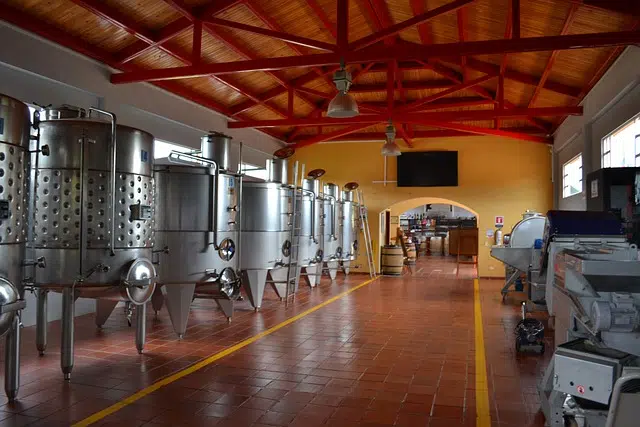
According to biology, falling in love involves the development of chemical processes produced by endorphins.
A cycle made up of stages that follow one another and that cause a certain change of state is known as a process . The processes involve the passage of time or, sometimes, a symbolic advance.
Chemical , on the other hand, is something linked to chemistry . This notion (chemistry) refers to a science dedicated to the analysis of the composition, characteristics and modifications of matter .
What are chemical processes
Chemical processes are operations that result in the modification of a substance , either through a change in state , composition or other conditions. These processes involve the development of chemical reactions .
A chemical process can also lead to physical reactions . If the initial matter is compared with the result at the end of the process, various types of changes will be noticed. Chemical processes can develop naturally or through human manipulation.
The case of falling in love
It is possible to find chemical processes in all areas. Scientists even maintain that falling in love is nothing more than a chemical process caused by endorphins such as phenylethylamine , dopamine and norepinephrine .
The biological action of this class of hormones is due to the need to establish links that lead to reproduction and, therefore, the subsistence of the species .

Various chemical processes come into play in wine production.
Chemical processes in wine production
Wine production is also developed from chemical processes.
The action of yeast on the must drives the fermentation of sugars: glucose is transformed into alcohol and carbon dioxide. Then other reactions occur, such as sulfite, until the wine with the properties that reaches the tables is obtained.
Its importance in the industry
There is a close relationship between chemical processes and industry ; In fact, they are considered part of the so-called industrial processes, which consist of a series of physical and chemical transformations that are carried out with the aim of producing a final product, different from the initial one. Throughout this process, several stages are carried out, and it can be found in many areas, with very different objectives, such as the following:
* metal purification;
* scientific research;
* plastics manufacturing;
* food preparation;
* water cleaning;
* drug manufacturing;
* preparation of construction materials.
Although the first image that usually comes to mind when we think about chemistry is a test tube, many of the chemical processes are carried out in reactors, containers or equipment in which chemical reactions are carried out in a controlled manner , taking into account factors such as pressure, temperature and the number of reactants, among many others.
Sometimes reactors are biological, that is, living beings that are involved in chemical processes to perform different tasks. This can be seen, for example, in the leaching of copper and the cleaning of water pollution .
Some types of chemical processes
* Metallurgical process
Metallurgy is the technology and science used to separate metals from their ores (a type of mineral). The metallurgical process brings together certain chemical processes, such as electrochemical reduction, which serves to achieve the purity of a metal from the reduction of its components.
* Pyrometallurgy
This series of chemical processes is based on the use of elevated temperatures for the modification of the mineral and its reduction to free metal.
* Electrometallurgy
A group of processes for reducing metallic ores or refining metals, based on electrolysis (the use of electric current to break down a substance in solution).
* Food manufacturing
In this case, many chemical processes are used with substances such as coloring, preservatives and flavorings, to obtain various objectives, ranging from conservation to flavor enhancement.
